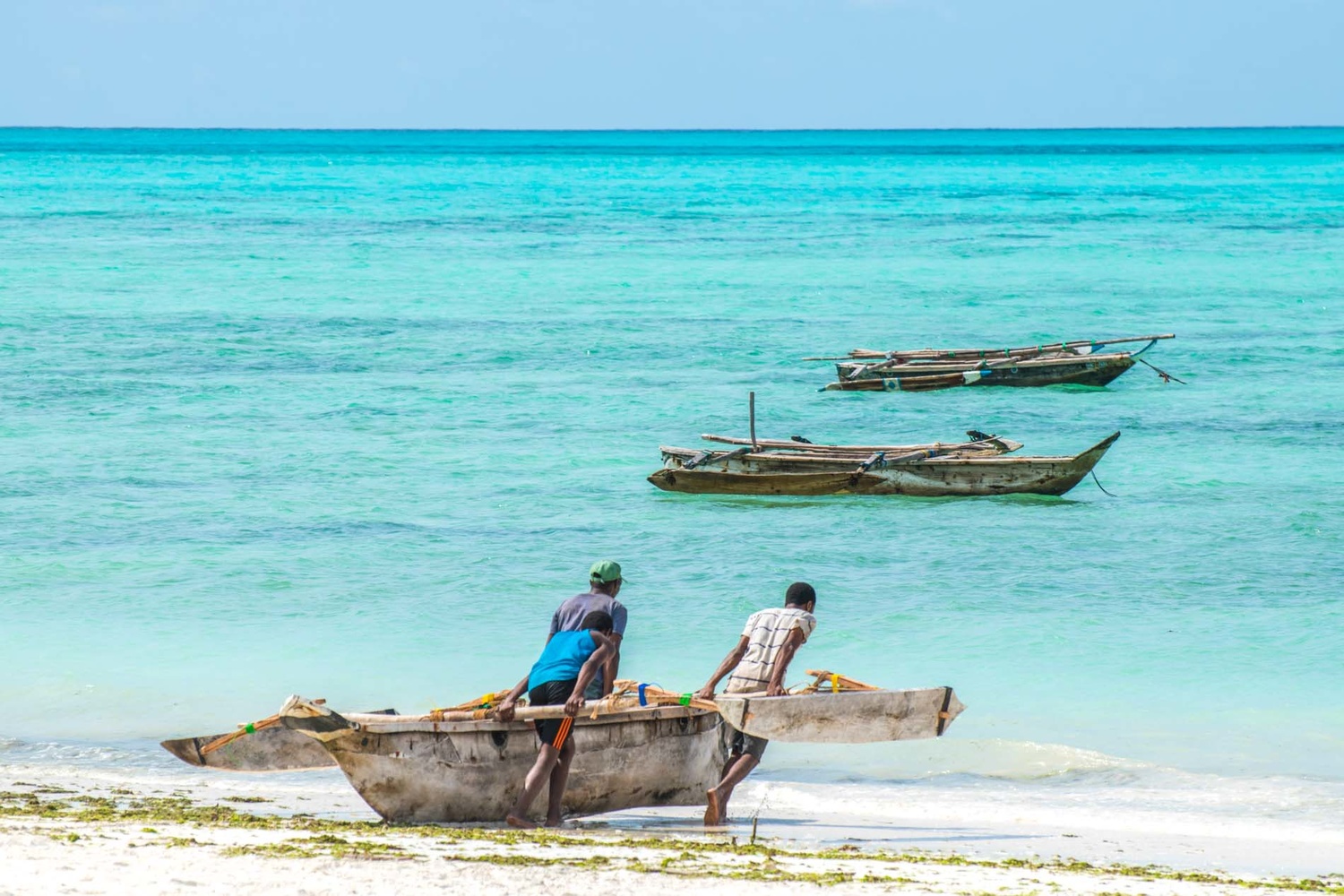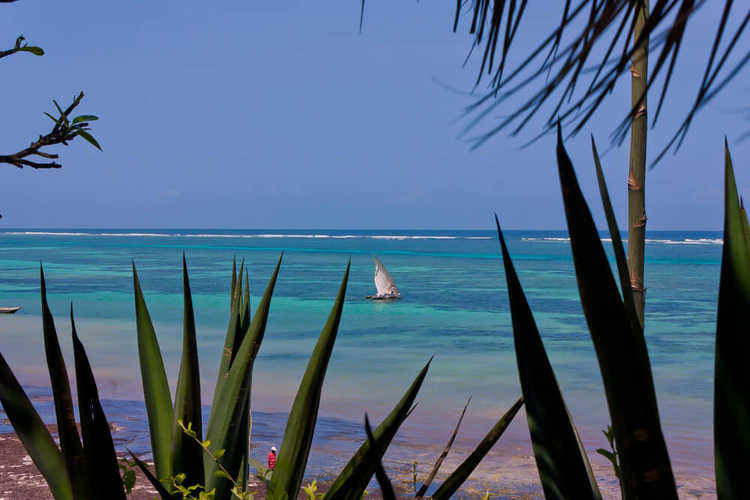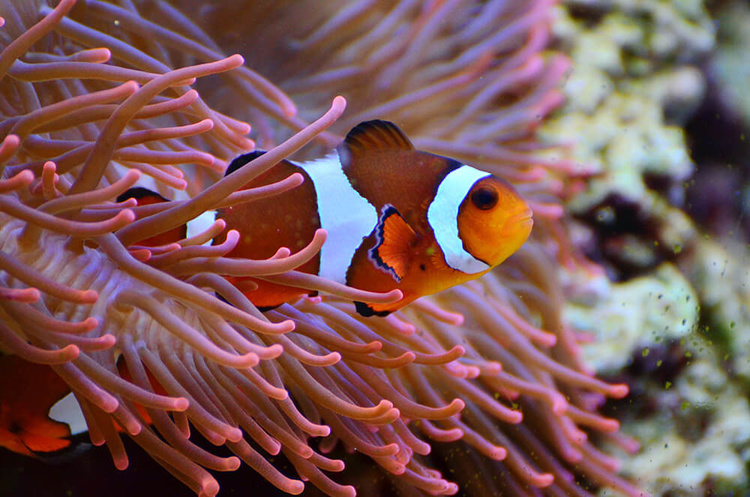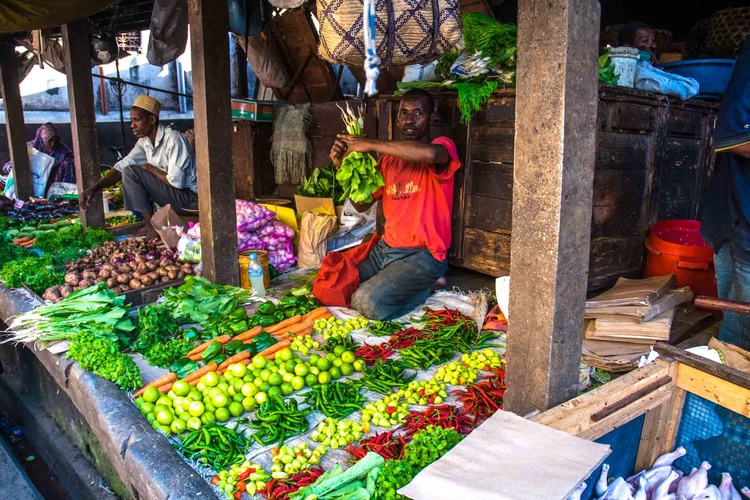Diani Beach extension
From US$700 per person
Itinerary
-
Day 1Nairobi - Mombasa - Diani
In the morning, you leave Nairobi. Transfer from your hotel to the main train station. You board a 1st class train for Mombasa. The railway line follows the original line built in the 19th century. In particular, it runs alongside the Tsavo East Reserve. Arrival in Mombasa, welcome by our team and transfer to your hotel on Diani beach. Start your free stay.
-
Day 2Diani Beach
Day at leisure on the Indian Ocean. Depending on your mood, you can relax on the long, sandy beach of Diani, plan a sea activity (motorboat or traditional sailing boat trip, diving...), or visit the city of Mombasa. Diani is also a kite surfing site.
-
Day 3Diani Beach
Day at leisure on the Indian Ocean. Depending on your mood, you can relax on the long, sandy beach of Diani, plan a sea activity (motorboat or traditional sailing boat trip, diving...), or visit the city of Mombasa.
-
Day 4Diani Beach - Mombasa
Last day to enjoy the Indian Ocean coast. Depending on your flight schedule, departure for the airport 3h - 3h30 before your flight.
Prices
Price conditions for your extension in Kenya
Price Per Person
Price Include
- Transfers to and from the train station or airport to the hotel
- Three nights' accommodation with breakfast in a shared room (twin or double room)
- 1st class train from Nairobi to Mombasa
Not Included in the Price
- Visa fee
- Domestic flights supplement instead of trains
- Transfers where not applicable
- Hotel accommodation in Nairobi
- Single room supplement
- Drinks and meals during your stay (except breakfast)
- Activities during your stay
- Any items or expenses of personal nature
Option
- We can also arrange domestic flights, on-site activities and other services. Please do not hesitate to contact us
Travel info
Here is
some practical information for your extension in Kenya
Accommodation
during your extension in Kenya
Transport
Other
Useful Information to travel in Kenya
- No plastic bags in to Kenya
- No plastic bottles in the Game Parks and Reserves
- Carry your COVID Vaccination Certificate
Entry requirements for Kenya
- Mandatory passport valid 6 months after your return date
- Since January 4, 2024, entry to Kenya has been subjected to an electronic travel authorisation (ETA), in place of a visa.
Sanitary conditions for Kenya
- Yellow fever
- Malaria
- Consult your GP or an International Vaccination Centre to assess your state of health and receive health recommendations, particularly concerning vaccinations
- Set up a personal pharmacy
Climate
What to Pack for your extension in Kenya
- Good quality sandals
- Casual shoes for evenings
- Light boots for your own comfort in the evening
- Practical safari jacket
- Fleece jacket
- T-shirts
- Short and long sleeve shirts or blouses
- Shorts and long casual trousers
- Enough underwear, socks and hankies
- Bathing suit
- Toiletries, lip balm and scarves
- Safari hat or cap
- Personal medication
- Important Quality mosquito/insect repellent (for body)
- Quality sun blocker cream/sunscreen
- Binocular and Guidebooks
- Camera with extra battery and memory card




